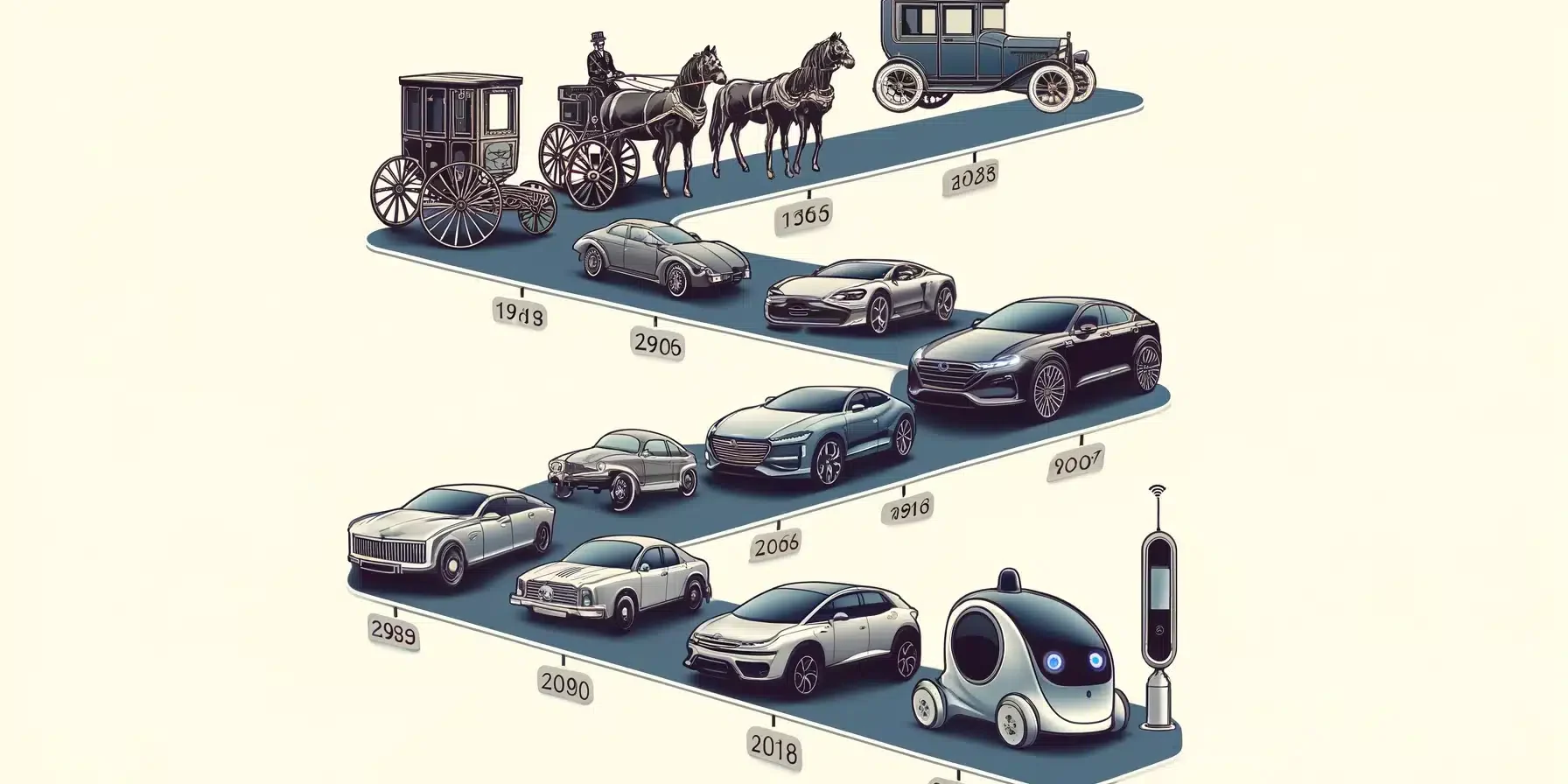The Evolution of Automotive Technology: From Horse-Drawn Carriages to Self-Driving Cars
The automotive industry has come a long way since the invention of the first motor vehicle. Over the past century, advancements in technology have revolutionized the way we travel, making it faster, safer, and more efficient. From the early days of horse-drawn carriages to the cutting-edge self-driving cars of today, the evolution of automotive technology is a fascinating journey that reflects human ingenuity and the relentless pursuit of progress.
Early Innovations and the Birth of the Automobile
The story of the automobile begins in the late 19th century with the invention of the internal combustion engine. Karl Benz is often credited with creating the first true automobile in 1885, the Benz Patent-Motorwagen. This three-wheeled vehicle was powered by a single-cylinder engine and could reach speeds of up to 10 miles per hour. While rudimentary by today’s standards, it represented a significant leap forward from horse-drawn carriages.
Early automobiles were luxury items, accessible only to the wealthy. They were often custom-built, and their reliability was questionable. However, the introduction of the assembly line by Henry Ford in 1913 transformed the industry. The Model T, produced using assembly line techniques, became the first mass-produced car, making automobiles affordable for the average person. This democratization of car ownership had profound effects on society, enabling greater mobility and contributing to urban sprawl.
Advancements in Safety and Performance
As automobiles became more common, the focus shifted to improving safety and performance. The 20th century saw numerous innovations that enhanced the driving experience and reduced the risk of accidents. One of the most significant advancements was the introduction of the three-point seatbelt by Volvo in 1959. This simple yet effective device has saved millions of lives and is now a standard feature in all vehicles.
The development of airbags, anti-lock braking systems (ABS), and electronic stability control (ESC) further improved vehicle safety. ABS prevents wheels from locking up during braking, allowing the driver to maintain control of the vehicle. ESC helps prevent skidding by automatically applying brakes to individual wheels. These technologies, combined with advancements in crash testing and vehicle design, have made modern cars significantly safer than their predecessors.
In terms of performance, the automotive industry has made remarkable strides. The development of fuel injection systems, turbochargers, and advanced aerodynamics has resulted in more powerful and efficient engines. Today’s cars can achieve impressive speeds while maintaining fuel efficiency and reducing emissions. The shift towards electric vehicles (EVs) represents another significant milestone, offering a cleaner and more sustainable alternative to traditional internal combustion engines.
The Digital Revolution and Connected Cars
The advent of digital technology has had a transformative impact on the automotive industry. Modern cars are equipped with sophisticated computer systems that control everything from engine performance to infotainment. The integration of GPS navigation, advanced driver assistance systems (ADAS), and smartphone connectivity has enhanced the driving experience, making it more convenient and enjoyable.
ADAS technologies, such as adaptive cruise control, lane-keeping assist, and automatic emergency braking, use sensors and cameras to monitor the vehicle’s surroundings and assist the driver in various tasks. These systems have made driving safer and paved the way for the development of autonomous vehicles.
Connected cars, which can communicate with other vehicles and infrastructure, represent the next frontier in automotive technology. Vehicle-to-everything (V2X) communication allows cars to share information about road conditions, traffic, and potential hazards, improving safety and efficiency. This technology is a key enabler for the widespread adoption of self-driving cars.
The Rise of Autonomous Vehicles
Self-driving cars, once the stuff of science fiction, are now becoming a reality. Companies like Tesla, Waymo, and Uber are at the forefront of developing autonomous driving technology. These vehicles use a combination of sensors, cameras, radar, and artificial intelligence (AI) to navigate and make decisions without human intervention.
The potential benefits of autonomous vehicles are immense. They promise to reduce traffic accidents, improve mobility for the elderly and disabled, and decrease traffic congestion. However, there are still significant challenges to overcome, including regulatory hurdles, technical limitations, and public acceptance.
Despite these challenges, the progress in autonomous vehicle technology is undeniable. Tesla’s Autopilot system, for instance, offers semi-autonomous driving capabilities, allowing the car to steer, accelerate, and brake automatically under certain conditions. Waymo has launched a limited self-driving taxi service in Phoenix, Arizona, showcasing the potential of fully autonomous vehicles.
The Importance of Car Key Replacement in Modern Vehicles
In the context of all these technological advancements, it’s easy to overlook the importance of something as seemingly mundane as car key replacement. However, modern car keys are sophisticated devices that play a crucial role in vehicle security and convenience.
Traditional metal keys have largely been replaced by electronic key fobs and smart keys, which use radio signals and encryption to communicate with the vehicle. Losing or damaging a modern car key can be a significant inconvenience and may require specialized equipment and expertise to replace. As cars become more advanced, ensuring that car key replacement services are readily available and capable of handling the latest technology is essential for maintaining vehicle security and owner convenience.
Conclusion
The evolution of automotive technology is a testament to human innovation and the relentless drive to improve. From the early days of the internal combustion engine to the advent of self-driving cars, each advancement has brought new possibilities and challenges. As we look to the future, the continued development of automotive technology promises to make driving safer, more efficient, and more enjoyable.
In this rapidly changing landscape, the importance of supporting services like car key replacement cannot be underestimated. As vehicles become more complex, ensuring that all aspects of their technology, from advanced safety systems to something as simple as a car key, are well-maintained and up-to-date is crucial. The journey of automotive technology is far from over, and the innovations yet to come will undoubtedly shape the way we travel for generations to come.







